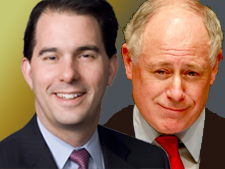With the Supreme Court’s decision in National Federation of Independent Business v. Sebelius, the Patient Protection and Affordable Care Act has achieved its first milestone: The repudiation of logic, the Orwellian assertion that A both is and is not A.
The reform package, popularly known as Obamacare, requires that individuals buy medical insurance. If you fail to do so, the law imposes a fine.
The zillion page legislation refers to this financial penalty 18 times. It never refers to a tax.
Its principal booster, President Obama, repeatedly insisted it wasn’t a tax. And as Justice Antonin Scalia wrote in his dissent, “We have no doubt that Congress knew precisely what it was doing when it rejected an earlier version of this legislation that imposed a tax instead of a requirement-with-penalty.”
But Chief Justice John Roberts, a George W. Bush-nominee, joined the four liberal justices to declare that what was not a tax, when proposed and passed, now is a tax — so that it could be declared constitutional under Congress’s taxing power. Roberts explains:
Congress did not intend the payment to be treated as a “tax” for purposes of the Anti-Injunction Act. The Affordable Care Act describes the payment as a “penalty,” not a “tax.” That label cannot control whether the payment is a tax for purposes of the Constitution, but it does determine the application of the Anti-Injunction Act.
Only were Obamacare not a tax could it be litigated at this time under the Anti-Injunction Act. Accordingly, the majority says it is not a tax. But it can only be ruled constitutional if it is a tax. So, the High Court calls it a tax and not a tax at the same time.
The dissent called this “remarkable.” Stronger words spring to mind.
This is Common Sense. I’m Paul Jacob.




